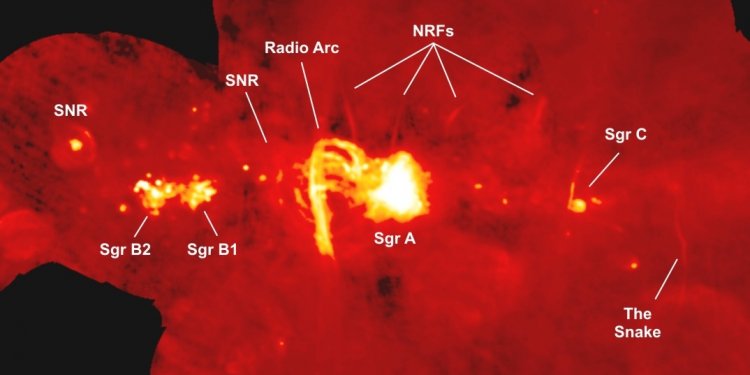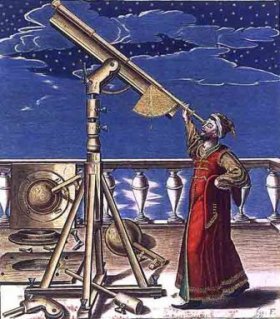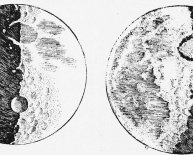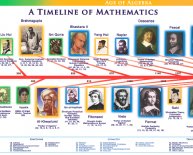
Famous Greek astronomers
 Are known worldwide, due to their contribution to Astronomy and mathematics.
Are known worldwide, due to their contribution to Astronomy and mathematics.
The Hellenistic period marked advances in astronomy, mathematics and medicine. Hellinistic refers to the Greeks and others who lived after Alexander the Great’s conquests, during which there existed a mixture of civilizations.
The Greek astronomers were able to travel all over the known world and exchange opinions and theories.
The Greek contribution to astronomy was not so much in observation as it was in applying logical thinking and geometry to these observations. That is how Greek scientists figured out that the earth went around the sun, calculated the size of the earth, and understood that the moon went around the earth.
Some famous Greek astronomers were Anaxagoras, who figured out what caused eclipses, Aristarchus, who figured out that the earth went around the sun, and Thales, who figured out that the earth was round.
Here are the names and information about the most known Ancient Greek Astronomers:
Ancient Greek Astronomers
- Aristarchus of Samos (310-230 B.C.) (Αρίσταρχος ο Σάμιος). Aristarchus suggested that the sun is at the center of the universe with Earth along with the other planets circulating around it. He estimated the distance of the sun from the Earth by observing the angle between the sun and the moon when it is exactly half full.
- Anaxagoras (500 BC Clazomenae) (Αναξαγόρας). Anaxagoras’ most important idea was that people should not trust their senses (seeing and hearing) or their common sense to tell them about the world, but they should always use logic and reason to figure out the truth instead. Sometimes this idea led Anaxagoras to some funny conclusions. For instance, he said that snow must have some darkness in it, as well as whiteness, or how could it turn into dark water when it melted? But he was able to use his logic to figure out correctly what caused eclipses.
- Thales (Miletus, about 630 BC) (Θαλής ο Μιλήσιος). Thales was the first Greek scientist that we know of who did not try to explain the weather and the stars and planets as things controlled by the gods. Thales was right that everything is made out of the same things, but those things are electrons and protons, not water.
He understood that the earth was round, and that the moon was lit by light reflecting from the sun. - Conon (Samos, 283-222 B.C.) (Κόνων). Conon was a Greek mathematician and astronomer. Headed the Alexandrian library after Euclid. Conon discovered a new stellar formation that he named Come (or Plocamos) Berenices, in honor of Berenice, queen of Ptolemaios III Evergetes.
- Eratosthenes of Cyrene (276-200 B.C.). (Ερατοσθένης ο Κυρήνειος). Greek astronomer and mathematician. Calculated the circumference of the Earth and finds a figure of 46, 000 km which is close to the present measured value. Also lays down the first lines of longitude on a map of Earth. He also developed a method for calculating all prime numbers: the sieve of Eratosthenes.
- Hipparchus of Nicea (190-120 B.C.). ( Ίππαρχος) Greek astronomer and mathematician. Considered the greatest astronomer of ancient times. Developed a system of planetary motion with the Earth at the center. This system was later refined by Ptolemy. Used data from a total eclipse of the sun and parallax to determine correctly the distance and size of the moon. The same data gave values for the distance and size of the sun an order of magnitude smaller than there actual values. Compiled the first tables of cord length, forerunner of trigonometric tables.
- Seleucus (Seleucia, 190-??? B.C.). (Σέλευκος). Last known astronomer to champion the heliocentric theory of the solar system until Copernicus.
- Poseidonius (Apamea, 140-50 B.C.). ( Ποσειδώνιος)Incorrectly calculated the Earth’s circumference, which 1500 year later, led Columbus to believe that Asia was only about 3000 miles west of Europe.
- Sosigenes (1st century B.C.). (Σωσιγένης) Greek astronomer and mathematician. His advice to Julius Caeser led to the adoption of the Julius calendar, which stayed in effect until 1578 when it was changed by Pope Gregory XIII.
- Ptolemy Claudius (Alexandria, 127-145 A.D.). (Πτολεμαίος)Last great Alexandrian astronomer. Refined the system of planetary motion developed by Hipparchus, which had Earth at the center of the universe, known as the “Ptolemaic System”. Best known for his Almagest
- Hipatias (Alexandria, 3rd – 4th century A.D.) (Υπατία). Last ancient philosopher and astronomer. The only woman astronomer in ancient Greek history.
Greek astronomy is the astronomy of those who wrote in the Greek language in classical antiquity i.e. see Aristarchus of Samos – Greek astronomer/mathematician and his heliocentric model of the solar system.
Greek astronomy is understood to include the ancient Greek, Hellenistic, Greco-Roman, and Late Antiquity eras. It is not limited geographically to Greece or to ethnic Greeks, as the Greek language had become the language of scholarship throughout the Hellenistic world following the conquests of Alexander.
Greek astronomy is also known as Hellenistic astronomy, while the pre-Hellenistic phase is known as Classical Greek astronomy.
During the Hellenistic and Roman periods, much of the Greek and non-Greek astronomers working in the Greek tradition studied at the Museum and the Library of Alexandria in Ptolemaic Egypt.
The development of astronomy by the Greek and Hellenistic astronomers is considered by historians to be a major phase in the history of astronomy in Western culture. It was influenced by Babylonian astronomy; in turn, it influenced Islamic, Indian, and Western European astronomy.

















